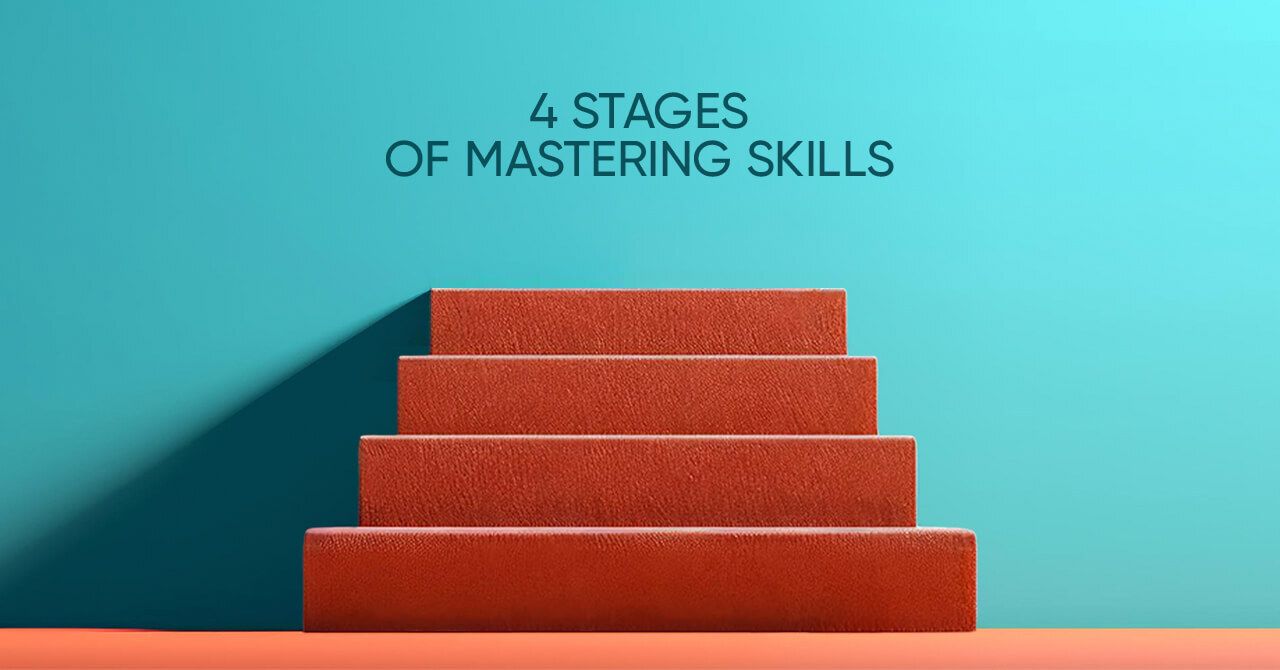
How to Master Any Skill? Four Stages to Success
When it comes to mastering any skill, there are actually four stages of MASTERY, I would like to share this with you and how you can relate this to learning languages, for example, to get better at your skills.
Mastering a skill is not that easy, BUT it is achievable.
To be good at something requires some time & effort, but if you are persistent on it & keep doing what you do, eventually you WILL get there.
To give you a clearer picture, allow me to break it down for you on the stages of what it takes to be fluent in whatever you want to pursue, be it playing a guitar, being good at a certain sport, or even mastering a language.
When it comes to mastering any skill, there are actually four stages of MASTERY, I would like to share this with you and how you can relate this to learning languages, for example, to get better at your skills.
Four stages of mastering any skill
Stage 1: unconsciously incompetent
This simply means that you don’t know what you don’t know.
In so, you don’t need to worry too much or feel too bad about it, as you are beginning to learn. Essentially, this means you’ve never tried it before, which means you don’t know how weak you actually are at that particular skill, so you have zero to no awareness. So, this is where we are going to move on to the next stage.
Stage 2: consciously incompetent (quit zone)
I personally call this the “quit zone.” Why?
Too many people tend to falter at this stage and eventually give up. This level might take almost forever for someone to go through. But, like it or not, this is a necessary step to get you to the next level of mastery, as it is the most crucial in your development stage.
At this stage, you’ve tried it a little bit, and you’re beginning to be aware that you’re not so good at this.
So let’s say, for example, you’ve never really done public speaking, and you try to actually stand up and speak in front of a group of people, and then you realise that there are many shortcomings from your side. Despite that, it’s great for you to know that you’re in this stage, so now you know how to be good at it the next time you are asked to speak again. Keep practicing at this point.
This stage is so important because here, what is going to happen is that if you stick to it, your brain is set to overcome any form of frustrations, demotivation, or setbacks that are associated with mastering that particular skill.
Once your brain has established some neural connections five to ten times faster when you stick with something that you do, you are now being programmed to embrace any form of frustration, and that’ll make you learn faster and faster. You will begin to notice very quickly how your skill is getting sharper at this rate. And if you go on at this point, growth will start to take place.
Stage 3: consciously competent
This is where you’re pretty good at the skill, but your brain still has to think about the execution consciously.
So, once you’ve embraced the frustration over time and you’ve practically gone through this, the super learning phase of your own game will work on grasping the skill.
You now have the awareness of the skill, but you still have to think about the movement pretty much.
Let’s pick that example of public speaking again. When you go upstage to speak, you have to think about all the words and gestures that you’re going to make. But the difference is now that you’re able to do it mostly in the right places. Things begin to gel & move in your favour.
Stage 4: unconsciously competent (full mastery)
Essentially, it’s instinctual.
Things have become second nature for you. You’re now so good at it that you don’t even have to think about it.
This is the mastery stage where we want to be, and if you spend long enough in stage 3 and keep practicing, you lock in the skill as an instinct.
What it means is that now you’ve wired it so much in your brain, you have that mind-muscle connection in which the muscle memory, having done it so many times, embracing the frustration, continuing to go, even as you’re getting pretty good. Everything becomes automatic for you at this point.
In short, it becomes effortless.
I hope this really helps in your quest to master your own skill, and I wish you the best of spirits in whatever you do!
I'm a distinguished professional with over 22 years of diverse industry, who's currently holding a Mini-MBA in Strategic Management and a certified business English coach.

